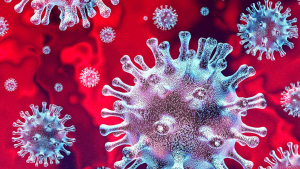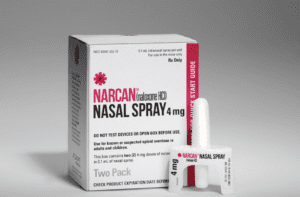
Global Collaboration and Industry’s Role in Combating the Mpox Outbreak
Global health organizations and industry leaders like Bavarian Nordic and QIAGEN are collaborating to tackle the emerging mpox outbreak, with key efforts focusing on enhanced surveillance, vaccine distribution, and international solidarity.
By Annabel Baldy | August 27, 2024
| BioBuzz has been connecting the life science workforce since 2009. We’ve built an expansive community in the Mid-Atlantic with a national readership that spans from Massachusettes to Florida, and New York to California. For our next chapter, we’re building a proprietary talent logistics model to help employers source and hire life science talent. Learn more. |
Earlier this month, several public health entities raised alarms about the spread of mpox, particularly as a new variant, Clade Ib, has emerged. This variant is believed to be more virulent, causing more severe illness compared to other variants, such as Clade II. In response, a united front of global health organizations and key industry partners has mobilized to tackle the outbreak, underscoring the critical role of collaboration in addressing such public health threats.
As the world faces this growing challenge, the biotech and pharmaceutical industries are stepping up to provide vital support in education, awareness, surveillance, testing, and vaccination efforts. These partnerships are crucial for containing the spread of mpox and ensuring a swift and effective response to this and future public health emergencies.
Why This Is Concerning
The increased virulence of Clade Ib and its potential to cross borders in our interconnected global systems make this outbreak particularly alarming. While there is still much to learn about the virus’s transmissibility, its spread has already prompted several organizations to take action.
On August 14, the World Health Organization (WHO) declared the latest mpox outbreak in Africa a public health emergency of international concern. Additionally, mpox has been designated a Level 2 travel warning in the Democratic Republic of the Congo, and Africa CDC has declared it a Public Health Emergency of Continental Security. These declarations emphasize the importance of early surveillance and preparation to prevent the virus from spreading further.
Why We Should Remain Composed
Despite these concerns, many health officials are urging composure in this time stating that the spread of the virus can be contained with appropriate measures, including increased resources for education, awareness, surveillance, testing, and vaccination.
Hans Kluge, WHO’s European Director, emphasized the global need for collaboration, stating in a UN media briefing, “We can and must tackle mpox together. How we respond now and in the years to come will prove a critical test for Europe and the world.”
Jean Kaseya, the head of Africa CDC, echoed this sentiment, urging against travel bans and advocating for solidarity and support instead. “Don’t punish Africa,” Kaseya said during a media briefing. “We need you to provide appropriate support, this vaccine is expensive.” Referencing the health inequities exposed during the COVID-19 pandemic and calling for a more equitable response to the mpox outbreak.
Instead Kaseya urged collaboration between countries and health organizations.
Industry’s Role in the Fight Against Mpox:
Collaboration between countries and health organizations is crucial, and so is the role of the biotech industry in supporting these efforts. Education, awareness, surveillance, testing, and vaccination are increasingly important in preventing further outbreaks.
To bolster Africa’s health security, the Africa CDC has pledged to deliver 10 million mpox vaccine doses by 2025. In support of this goal, a partnership with Bavarian Nordic has been established to enhance vaccine manufacturing capabilities within Africa, ensuring that up to 2 million doses are available this year.
Surveillance and laboratory testing are equally vital in the fight against mpox. QIAGEN, a leader in molecular diagnostics, is actively contributing to this effort. The company has been supportive in developing protocols and getting extraction kits to those who need them, enabling faster and more accurate detection of mpox. QIAGEN public health team is also in close communication with the WHO, assisting with the emergency delivery of extraction kits to affected countries. Additionally, QIAGEN continues to work with local and international partners to provide a complete portfolio of solutions for testing and surveillance, from sample prep protocols, qPCR and dPCR detection assays, and whole genome sequencing.
In a time when global health is under threat, the combined efforts of public health organizations, governments, and industry leaders are especially critical. Through collaboration, we can strengthen our defenses against mpox and other emerging threats.






